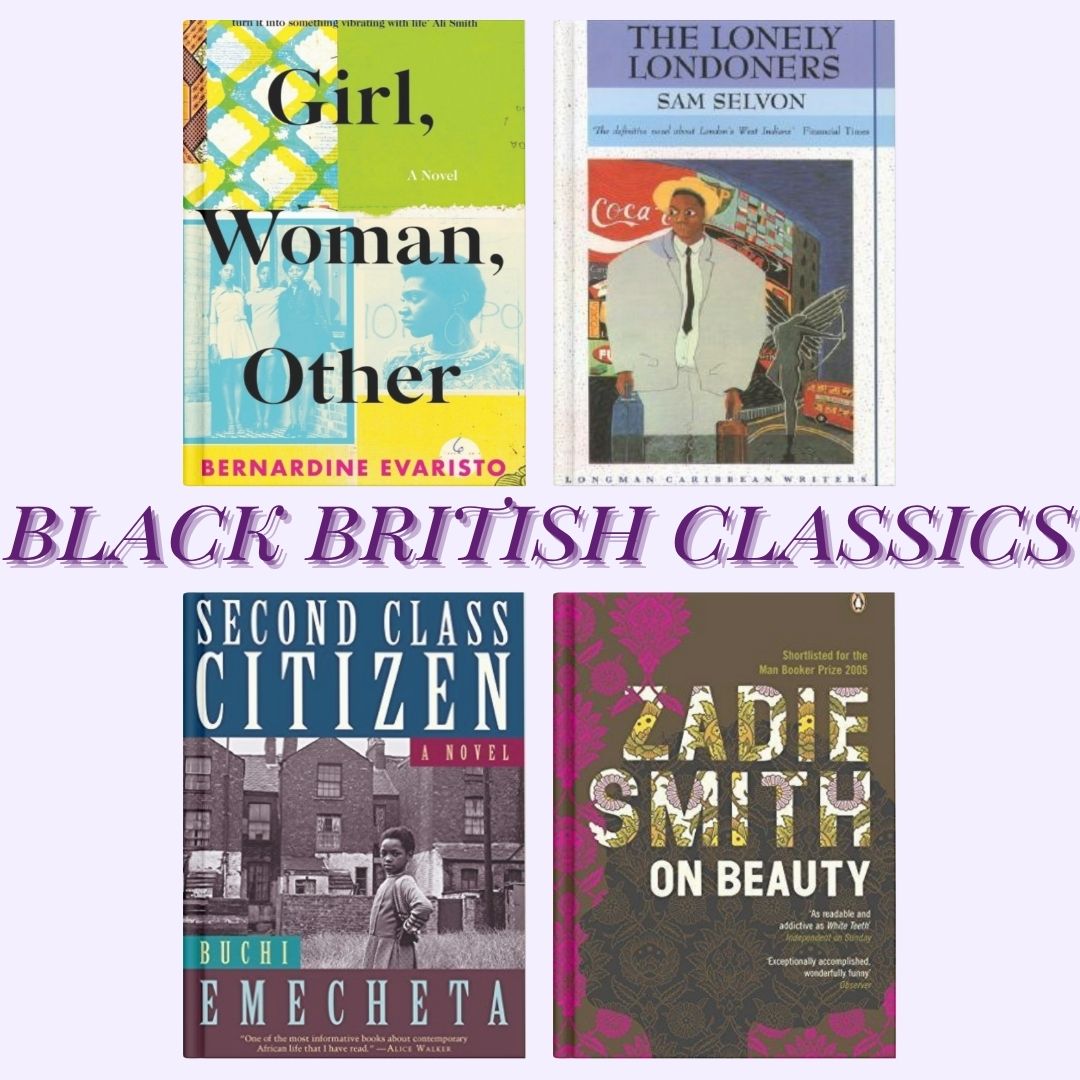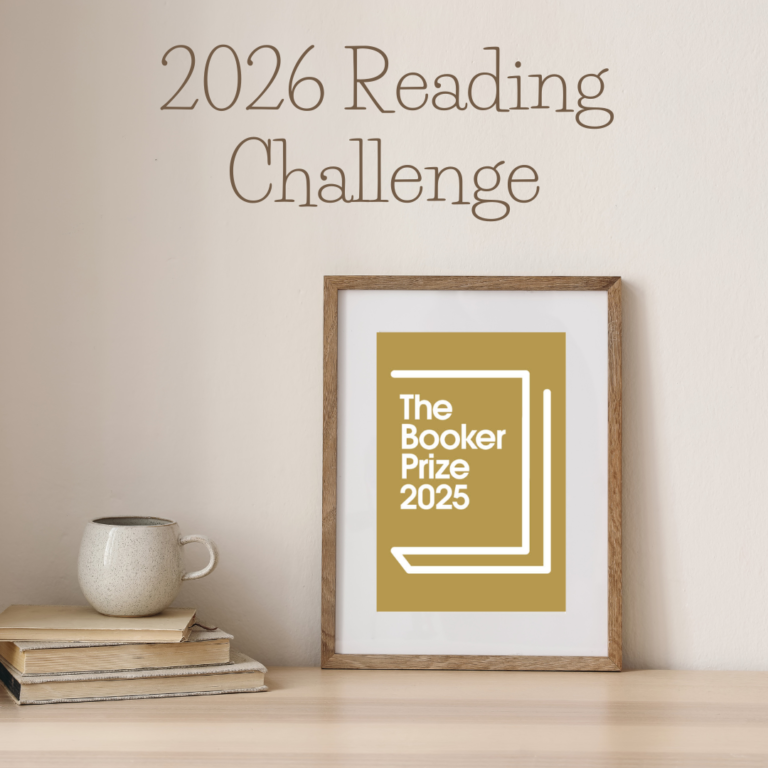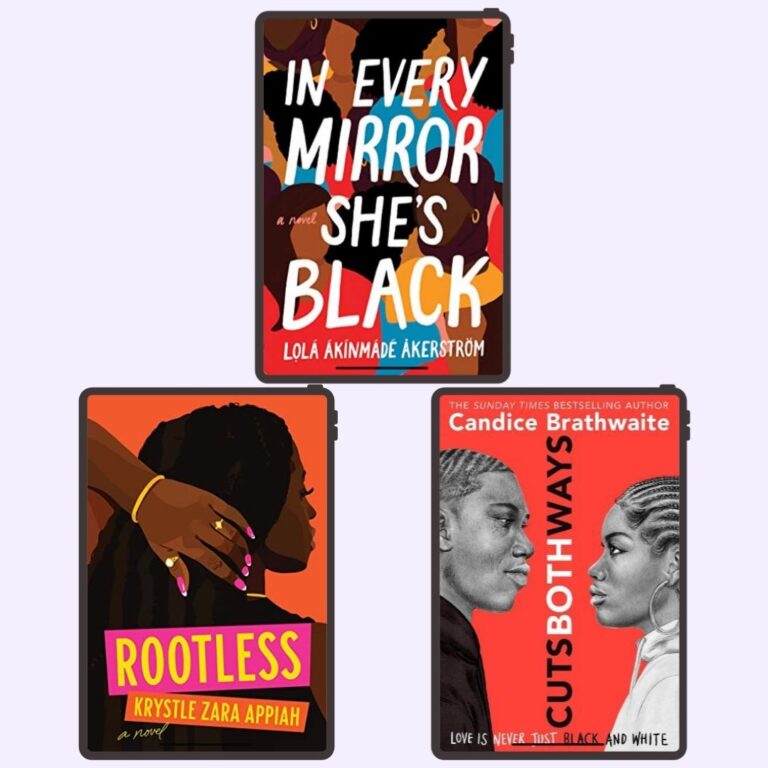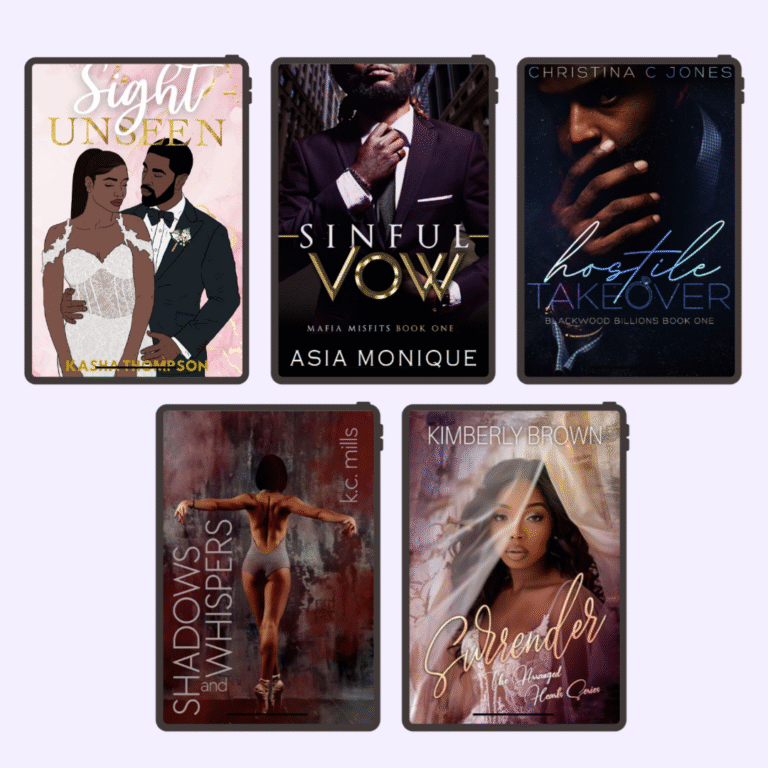Black British Classics and Literary Fiction
Black British stories that are considered true “classics” are few and far between, I had to do quite a bit of research to find them. Yet there’s such a wealth of literature capturing the experiences of our people, from the Windrush generation to those who followed.
It felt like a disservice to Black History Month to overlook the voices of writers who had to fight so hard for recognition in a world that rendered them invisible while simultaneously targeting them. I hope these Black British classic stories offer a window into the lives of those who came before us, illuminating both their struggles and their extraordinary resilience.
On Beauty by Zadie Smith
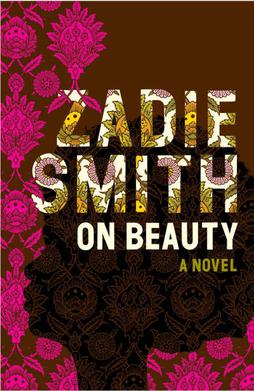
This novel explores family, love, race, and politics in an American college town. It follows two intellectual rivals, the Belsey and Kipps families, mixed-race British/American families living in the United States, whose lives intertwine through infidelity, ideology, and art. Smith dissects ethnic and cultural differences in both the USA and the UK, liberalism, identity, and beauty with wit and compassion, revealing the messiness of human relationships and moral contradictions.
I first read this when I was about sixteen. At the time, its themes and writing style were slightly advanced for my level of understanding, so I found it quite challenging to get through. Even so, I was intrigued by it, and looking back now, I see it as one of those books that offers immense insight and provokes deep introspection and thought.
The Lonely Londoners by Sam Selvon
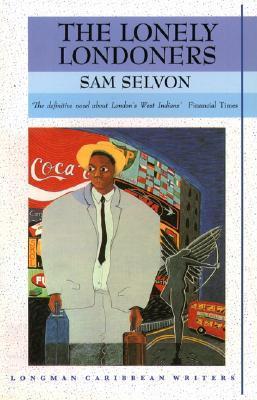
Set in 1950s London, this ground-breaking novel captures the experiences of Caribbean immigrants seeking opportunity in a hostile city. Through vibrant Creole prose and humour, Selvon portrays their friendships, struggles with racism, poverty, and loneliness, and their determination to survive and belong. It’s a vivid portrait of post-war migration, resilience, and the spirit of London’s West Indian community.
This book is written as a collection of interconnected and standalone vignettes exploring various lives and experiences. Because of this structure, it doesn’t flow like a traditional narrative, which some readers might find challenging to engage with. However, I personally love stories like this, ones that weave together diverse perspectives to create a rich, multifaceted picture of life.
Second Class Citizen by Buchi Emecheta
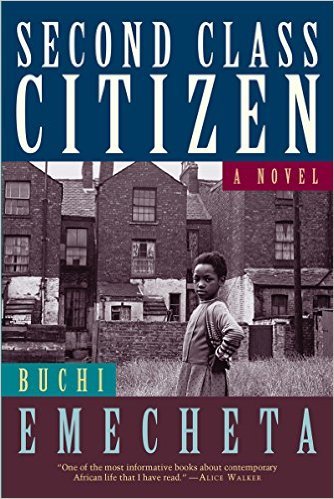
This novel follows Adah, a Nigerian woman who emigrates to Britain seeking education and freedom. Facing racism, sexism, and economic hardship, she struggles against her oppressive husband and a society that devalues her. Emecheta’s powerful narrative portrays determination, motherhood, and the fight for dignity, illustrating the challenges of immigrant women pursuing independence in postcolonial Britain.
I was looking for stories written by British Nigerians from that time period and came across Buchi Emecheta, a woman who emigrated to the UK in her thirties to join her husband, only to discover that the world she arrived in was nothing like she expected. The story is semi-autobiographical and reveals much about the struggles Emecheta herself faced.
Girl, Woman, Other by Bernadine Evaristo
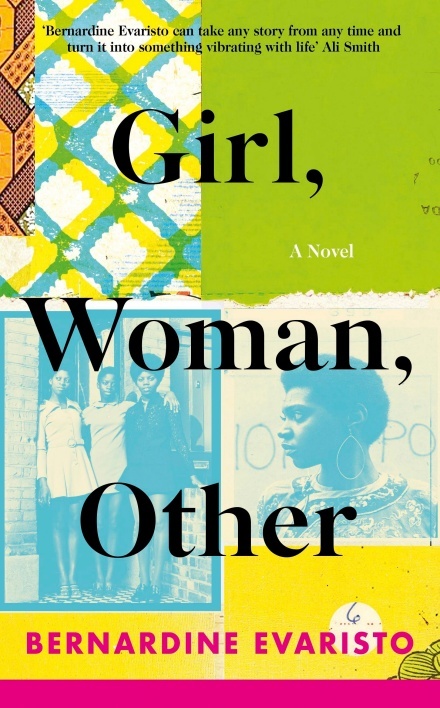
This novel follows twelve interconnected Black British women whose lives intersect across generations and social backgrounds. Through a polyphonic narrative, Evaristo explores identity, race, gender, sexuality, and belonging in contemporary Britain. Each woman’s story—filled with joy, pain, and resilience, reveals the complexity of Black female experience and the importance of connection, heritage, and community.
I haven’t read this yet but have wanted to for years, so I’m bringing it back onto my radar. Not technically a black British classic as it was published in 2019 but utterly deserving. Girl, Woman, Other won the Booker Prize in 2019, in a controversial joint decision that broke the judges’ own rules. Many criticised the split for overshadowing Bernardine Evaristo’s historic achievement as the first Black woman to win the award, a moment that highlighted the ongoing struggle Black women face in gaining full recognition across all spaces.
There are so many more books beyond the four I’ve mentioned, and I urge you to explore them with the same enthusiasm we’re encouraged to bring to reading so-called “classic” white literature. I have linked some more here.
I plan to do a follow-up focusing on other Black American and African authors in the future, but I chose to focus on British writers for this post because our unique racial experience is so often overlooked, overshadowed by our ties to our countries of origin.
Although many of us are first- or second-generation immigrants (with growing numbers of third and later generations), our experiences of racial identity, movement, and tension within Britain are vital parts of the nation’s story and should never be ignored.
Thanks as always for stopping by, and I’ll see you again on Friday!
Thank you so much for being here!
Signed,


